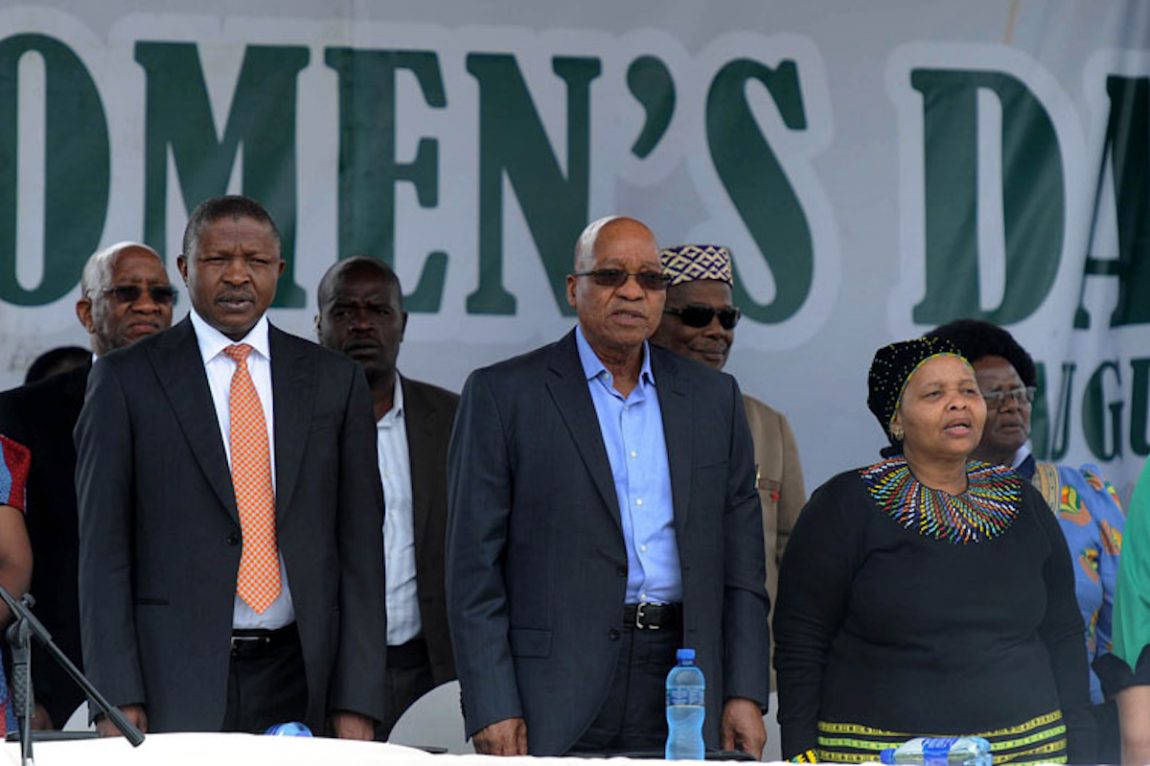The rise of the gangster state in South Africa
President Jacob Zuma oversaw a rise in political violence across all sectors of South African society.

President Jacob Zuma with Premier of Mpumalanga David Mabuza in Bushbuckridge, Mpumalanga (GovermentZA, via Flickr CC).
It’s a small world and it smells bad
I’d buy another if I had
Back
What I paid
For another motherfucker in a motorcade
From the Mbombela assassinations in Mpumalanga, one of South Africa’s northern provinces, to the killing fields of KwaZulu-Natal, the devaluation of human life has kept pace with our wounded economy. Life is cheap and taking it has become a trade — a way out of poverty — for many. Not since the Apartheid-era hit squads threatened South Africa’s nascent democracy immediately before and after 1994, has death stalked our nation with such impunity.
Take these excerpts from the 2009 statement of a self-professed hitman detailing Mpumalanga killings allegedly carried out for a prominent local politician — recently elected to national government — and a former provincial police chief:
I was hired to be a cleaner. Being a “cleaner” means eliminating political and or business opponents of both Mr W and Mr S.
I reported that my team was ready and Mr W said we would be paid R40,000 (US$3,340) per hit. We followed Mr Z into his house and I shot him twice or thrice. He was with a child who was shot by ___, while I had to make sure Mr Z was dead. This was in January 2009. I called Mr W and told him the job was done. Mr W sounded very happy upon hearing this news.
The cost of death is dropping too. According to those in the know, as little as R10,000 (about $845) is all that is needed to drop an opponent, while the high calibre rifles so favored by hitmen — state-issue or otherwise can be procured for much less.



